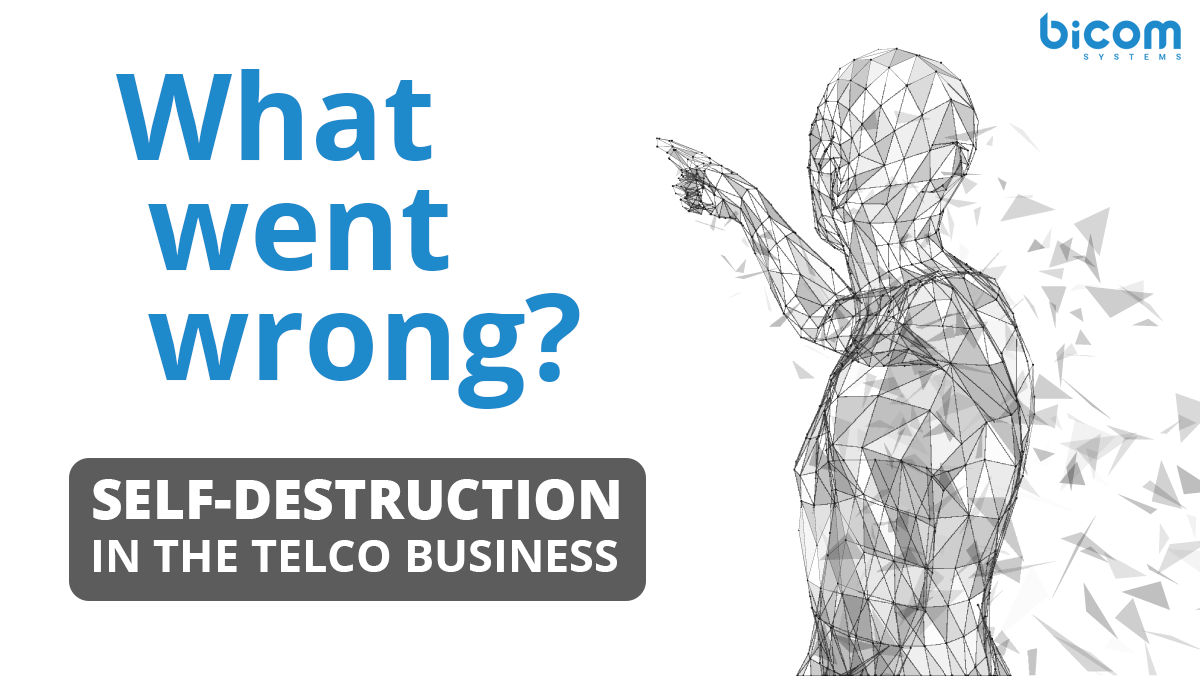In recent years we have seen several providers struggling financially or even closing up shop. Starting with Nortel, then Avaya, next Toshiba Telecom. These were all industry giants with successful products. What went wrong?
Certainly the issues were complex and there were many contributing factors that we will not discuss today. But one overriding point catches our attention as a vendor:
The failure to adjust to meet contemporary market demands.
Innovation is everything. There is no doubt that our industry has embraced The Cloud, SaaS, and other software- and Internet-based technologies with vigor and certitude. The Cloud PBX market is growing at an Compound Annual Growth Rate of 14.9%. The UCaaS market at a rate of 25-30%.
This leaves providers with two choices: adjust to meet demand or get left behind.
Nortel
Nortel was one of the best in the world of telephony; an industry giant. Nortel on-premise systems were well built and long-lasting. The quality of their product is not in question. However with the emergence of the Cloud, the industry as a whole began to evolve. Consumers no longer wanted expensive hardware and physical telephone systems. The advantages of VoIP, the Cloud, and other modern software-based technologies are simply too enticing.
While Nortel did make the initial transition from PBX to IP-PBX and even developed a Business Communications Manager (BCM 50), that was as far as they went in evolving to meet customer demand.
Sadly it was not enough and well, we all know what happened next.
Avaya
Avaya, another industry giant with a solid product, came to the rescue and bought out Nortel. However their success quickly turned to a Chapter 11 bankruptcy. Their mistake was similar to that of Nortel – a failure to evolve with current trends.
The Wall Street Journal puts it best:
“Avaya illustrates the potential pitfalls of buying big, established technology companies at a time of near-constant innovation. Private-equity firms often use borrowed money, or leverage, to buy a company with the hopes of juicing their gains on an eventual sale of the investment. But if economic conditions worsen or the competitive landscape changes, the buyout debt can become difficult to manage.” (Wall Street Journal)
Avaya’s corporate telephone systems worked great and scooping up what was left of Nortel only strengthened their offering, but when VoIP and other internet-based services hit the market the competition became overwhelming.
“The [Avaya] bankruptcy underscores the challenges telecommunications companies face as they transition to software and services from hardware” (Retuers)
Toshiba Telecom
Along the same lines as Nortel and Avaya, we can all agree that Toshiba’s telecom products were stable and functional. The issue has never been about the products themselves, but rather their failure to adjust according to market demand.
To be fair, Toshiba did make attempts to evolve with the industry, but unfortunately it was too late. By the time Toshiba released an IP product, the cloud was already beginning to trend. Despite their best efforts, it was just too late to catch up.
Read more in our blog post What Happened to Toshiba Telecom?
We keep seeing this pattern of legacy and on-premise providers either shutting down, going through financial trouble, or ultimately doing a major overhaul and switching to the cloud.
But our concern goes beyond that. These companies failed because they were not prepared to adjust as soon as the cloud hit the market. So the question is – what is next?
Everyone is abuzz about the cloud, but technology is certainly not going to stop innovating now. The cloud is the top technology of today – what about tomorrow?
Success in this industry is dependent on the ability to anticipate future trends and adopt them as soon as – or before – they hit the market.
What about your provider? Do they offer the latest trends? Do they have a plan for the future?
—
DOWNLOAD OUR FREE EBOOK:
7 Reasons You & Your Customers Should Switch to Hosted
 Transitioning to a hosted model will enable you to sell more, earn more, and enter the future with peace-of-mind.
Transitioning to a hosted model will enable you to sell more, earn more, and enter the future with peace-of-mind.
And you will not be alone – the value of the global Hosted PBX is expected to double from $4.73 billion in 2018 to $9.5 billion by 2023.
7 Reasons You & Your Customers Should Switch to Hosted will take you through the top seven benefits of a Hosted PBX for both you and your customers including more sales, more profits, and a secure future.

